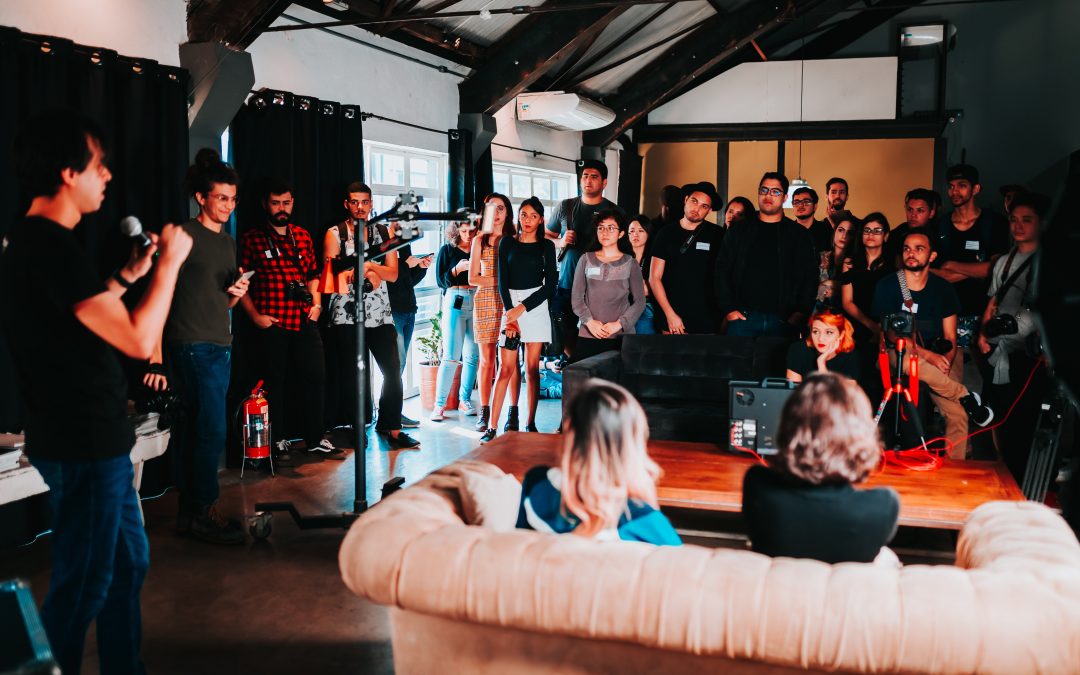Networking for musicians or managers in the music industry is an important skill. Some artists are lucky enough to find themselves working with a high-profile manager who can introduce them to others who have connections, or those who were recommended by other managers.
Others might be forced to structure their own network from scratch, which can be very difficult and time-consuming. Regardless of how you know someone, there are three basic types of networks: professional contacts, personal contacts, and musical acquaintances.
To put it simply- professional contacts are people that you have met through your work in the industry and want to connect with more deeply (e.g., booking agents) while personal contacts would just be friends outside of work (e.g., fellow musicians).
Musical acquaintances are more casual relationships with people in the same musical field that may not necessarily be connected to one another outside of the scope of their mutual connection (e.g., a saxophonist who doesn’t live in New York).
Networking may include you being in the mix with the other professionals. There are plenty of jobs, gigs, and promotions that you could get if you’re just in the mix with others in your field. If you’re not in the mix, then nobody will ever take notice of you or your music.
Be In The Mix
When you’re around other musicians and people in the industry, you’re drawing their attention. This is important during networking because other musicians are going to want to meet and know you, and those that you meet will want to know your music. Being in the mix means being part of the community of musicians and artists in the industry.
So, what does it mean? Well, for a musician to be “in the mix” is when they are working in the business of music as opposed to just playing music. By working in the business, they can promote their music. You can find other artists and managers at a gig, a show, or a contest where you are both performing.
In your city, try to find shows that bring jazz musicians, rock musicians, singers, and rappers in one place. This way, you’ll get to know each other on a first-name basis (in case the names of your favorite performers are too long). They often have the same managers too.
Some people have used social networks and the internet at large to expand their contact networks. A quick search like “Music business networking” can give you access to websites and online communities geared towards getting you more gigs. You can also make use of social networking sites like Facebook or Tumblr to network with other people who could be useful connections.

You can find artists at places of business such as record stores. You could visit all the local music stores and talk to the salespeople there. You could work at venues and meet other musicians that way. Just remember: go out there and find people to network with!
Let’s get down to networking specifics.
Here are a few tips and guidelines for how to network:
Have a Website
What can you do with a business card? Aside from using it to pierce an attacker’s throat, not much. In today’s day and age, you can introduce yourself to people online with an incredible website.
You could forward it to musicians and people you might think are cool and display it on your social media pages so that it gives you a sense of legitimacy. You can also create and custom-design the site to have more information as well, such as where you are playing next.
Networking is hard work, but it’s worthwhile and extremely important if you want success in the music industry.
Using Social Media
Social media is a great way to promote your brand and materials, so make sure you’re using it. Make sure your Instagram images are popping!
Being on social media is a pretty good idea regardless of what you do in the music industry. It’s going to help promote your music, both directly and indirectly through word-of-mouth. This helps bring more attention to you as well as reach out to other musicians or artists in the industry that may be looking for bandmates or work opportunities.
You should aim for small updates regularly (every 1–2 weeks), especially if you use social media as your main promotional tool for breaking into the industry.
Instagram is important because it helps promote your ability to make yourself stand out visually. With the advent of hashtags, you can search for “music businesses” or “contests” and find all sorts of opportunities. It’s a great way to discover new businesses and build up your business network.
Promote Your Music Online
Promotion is hard work. If you’re looking for a professional recording artist, then they’ll have a hard time trying to get exposure with only an EPK or resume on their website. If you want to grow as an artist, then try using several different and unique sources for promoting your music.
It’s important to build up a relationship with people who are also on social media. (unless they’re your competition). Social media is a great place to get the ball rolling and spread the word about your music. If people like what they hear, they’re more likely to support you when they do see you perform live.
Follow Up!
Just like a business, you have to create relationships. When you create these relationships, be sure to follow up! Send a message to people who you’ve met or are interested in. (assuming you used social media to build the relationship first).
The music business is a small world, so show restraint when it comes to contacting other people. Never “stalk” another artist or musician on social media, and don’t bother them with messages unless you have something important to say.
Don’t send one message after another unless they’ve asked for more content from you (such as extra tracks, videos, or links). Remember that being persistent is not the same as being professional!
Carve out time to build up your social media presence. Don’t use social media to follow other musicians and artists back or to post something just because they’re following you back. Try to build a solid relationship with people, and once you have built that trust, ask them for something (a guest mix, maybe).
Provide As Much Value As Possible
Keep in mind that people, especially other musicians, and artists, are busy people. Aside from work and school, they do not have as much time as you or I do. We have to make time for our craft and our development in the industry – quality over quantity.
Avoid spamming your audience – give them something worth reading! There is a fine line between being persistent and spamming your audience.
Don’t spam other musicians who are trying to be successful just like you are! Treat them like any other human being; don’t keep sending messages trying to pitch your music to them. This shows that you aren’t capable of communicating effectively with others and that you don’t know how to network properly.
Conclusion
Networking is hard work, but it’s one of the most important tools to ensure that you have a successful career as a musician. It’s important to remember that networking is more than just sending in your music or flaunting your new band. It’s about being friendly and having a good rapport with other musicians and artists.
If these people like what they hear, they’re more likely to promote your music themselves!
There are plenty of ways to network and build relationships with other musicians, so don’t be afraid to take risks in this area! Networking will not only help you gain exposure; it will help you find gigs and opportunities where you can interact with people from the industry.
In conclusion, if you’re looking for a way to make money, network! If you’re looking for a way to break into the music industry, network!
If you’re looking to write a musical masterpiece, network! Make it happen!
Check out 8 Ways to Make Money As a Music Producer in 2023






